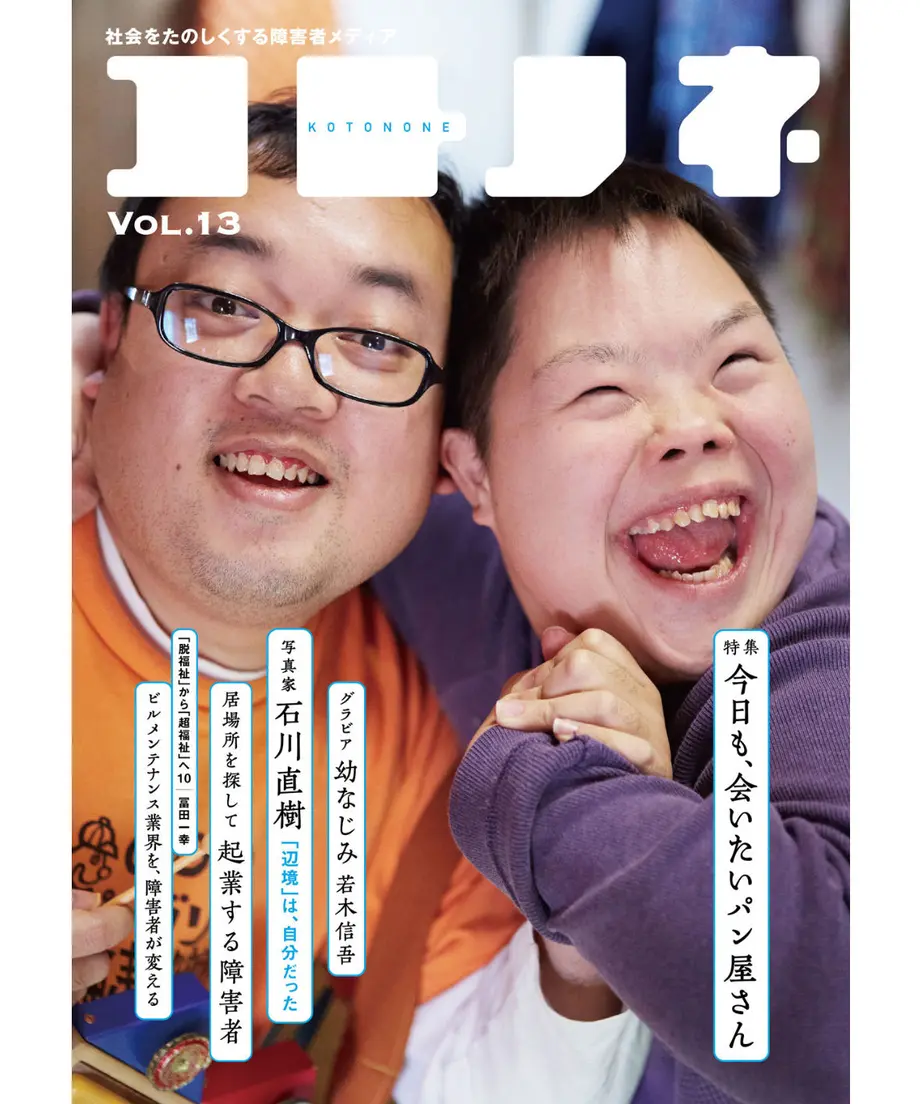September 28, 2023 - 14:16


This is the cover page of a Japanese magazine called "Kotonone" which aims to "make society more enjoyable for disabled individuals through media" (rough translation lol). This volume includes the story of a Wagaki Shingo, a photographer who published an album of his childhood friends, Ei-chan and Hiro-chan, after Ei-chan passed away. Both Ei-chan and Hiro-chan were born with developmental and intellectual disabilities, but because Shingo grew up with the two, he did not believe they were any different than he was. Nonetheless, Ei-chan and Hiro-chan were still subject to bullying and social withdrawl because they were percieved as different. Shingo says that he wants to depict who Ei-chan and Hiro-chan are as individuals. He wants the viewer to experience the same intimate connection he had with them through photographs that illuminate their personalities and interests.
What catches the viewer's attention in this cover photo is not necessarily the unique physical characteristics of their disabilities. Rather, we notice their facial expressions and how they embrace each other. It is a moment of friendship captured on camera that everybody can understand. This expands on Garland-Thomson's dominant visual rhetorics of disability, which asserts that depictions of disability should allow viewers to recognize the distinctiveness of disability as a testimony to our shared humanness. Shingo simply portrays Ei-chan and Hiro-chan as they are in their daily lives, with the hope that genuine depictions will lead to the acceptance and understanding of the disabled community in Japanese society.
